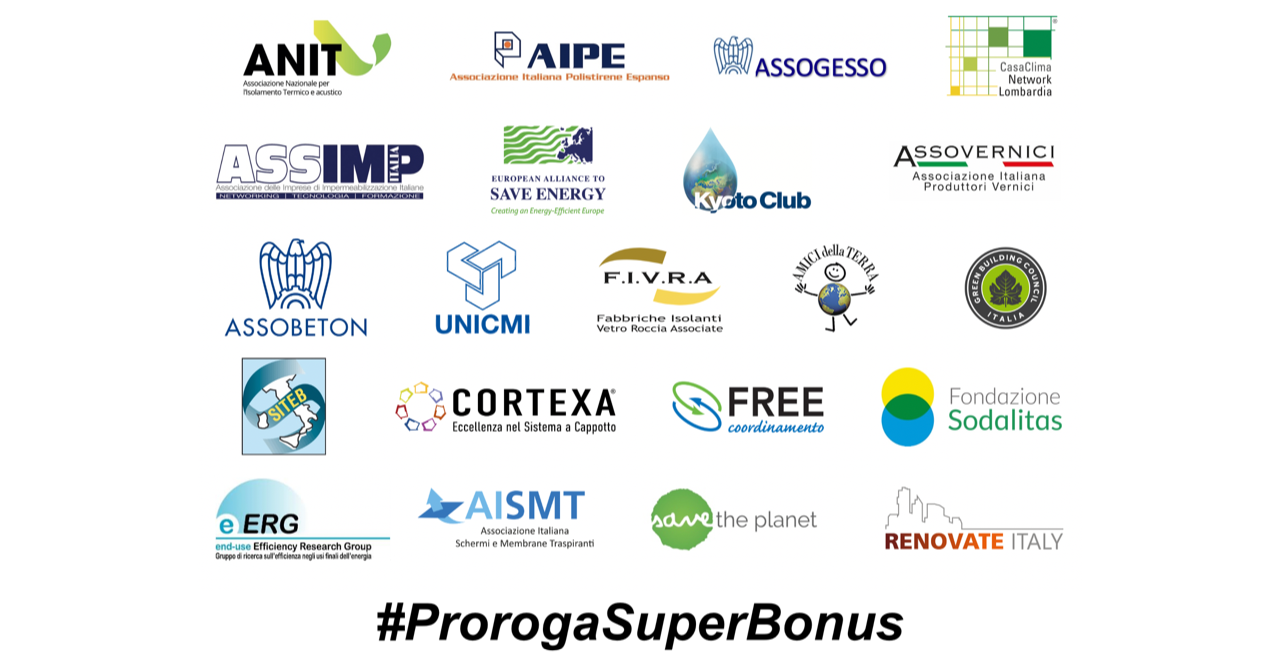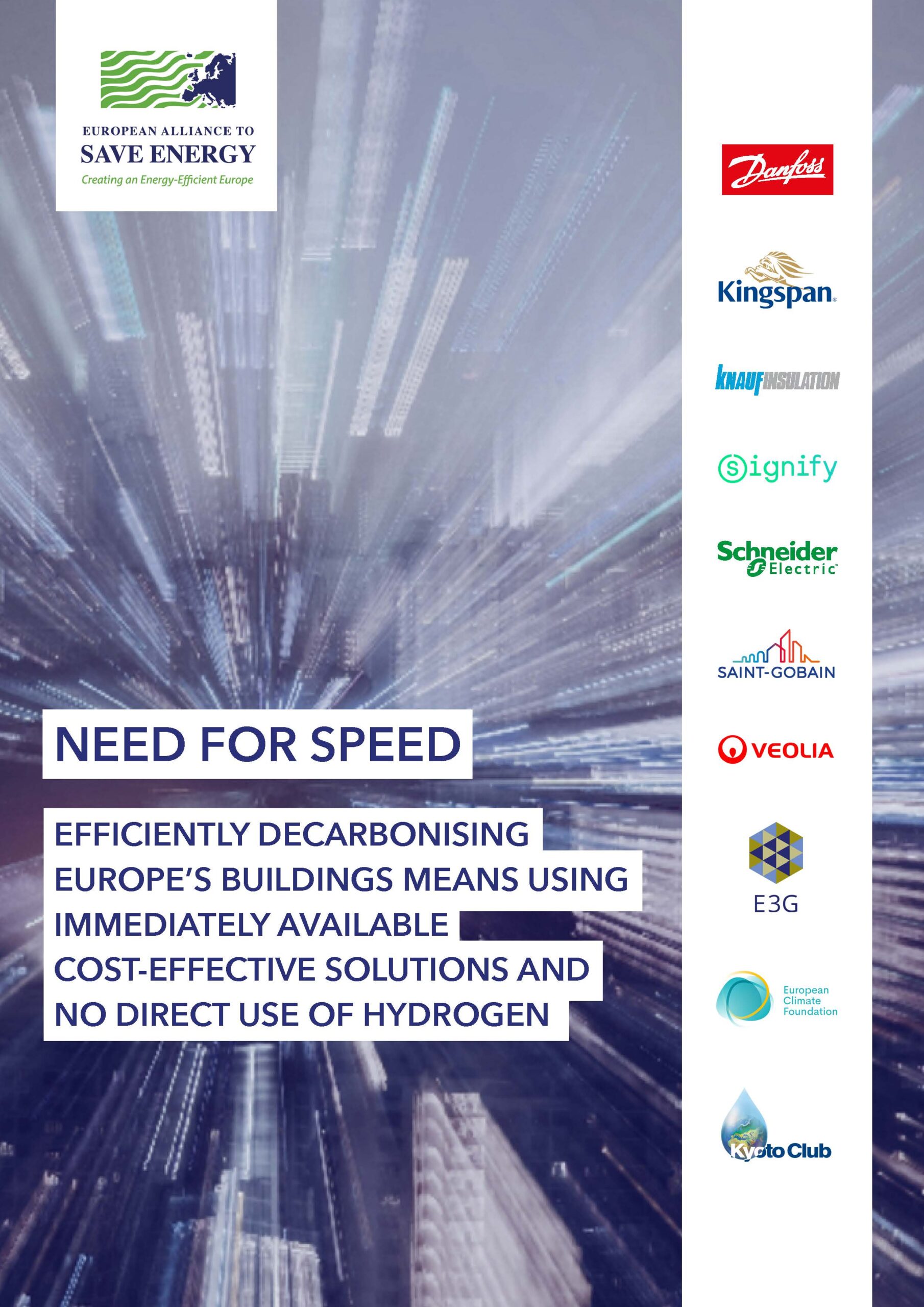The European Commission unveiled today its much-anticipated Renovation Wave initiative. The strategy outlines the steps needed to renovate more than 220 million existing buildings by 2050.
It also calls for the EU to at least double the current annual rate of buildings energy efficiency renovation by 2030 and to foster deep energy renovations. This would equal to renovating up to 35 million buildings over the next 10 years.
The European Alliance to Save Energy (EU-ASE) welcomes the initiative, which comes at a crucial moment for Europe’s short-term economic recovery and long-term path towards climate neutrality.
The Renovation Wave rightly underlines the importance of energy efficiency first principle as a horizontal guiding principle of European climate and energy governance and beyond, to make sure we only produce the energy we really need. The Commission announced the publication of the guidance on the energy efficiency first principle in early 2021.
A key element of the initiative is the proposal of a phased introduction of mandatory minimum energy performance standards for existing buildings, as part of next year’s revision of the Energy Performance of Buildings Directive (EPBD).
EU-ASE highly welcomes the accompanying document on EU funding of the Renovation Wave and the commitment by the Commission to ensuring that buildings are included as a top priority when assessing national recovery and resilience plans.
Monica Frassoni, President of the European Alliance to Save Energy said:
“We welcome the Renovation Wave as a key strategy to increase the energy efficiency of buildings by reducing their energy consumption and by fostering the greater quality, rate, and depth of comprehensive renovations. If this strategy is rightly implemented, the benefits will be tremendous. These will include improved comfort, cleaner indoor and outdoor air quality, reduced energy bills, local qualified jobs, and millions of citizens lifted out of energy poverty”.
Harry Verhaar, Chair of the board of the European Alliance to Save Energy and Head of global public & government affairs at Signify said:
“We welcome the Renovation Wave as the best kick-start of economic recovery in Europe. In particular, the decision to extend Article 5 of the Energy Efficiency Directive to all public buildings, including private schools and hospitals, is excellent news. Increasing the renovation rate of our buildings is the biggest job machine at our disposal, and these are good local jobs that replace expensive energy imports. Now let’s use the Renovation Wave as a lighthouse on our way to climate neutrality”.
Bonnie Brook, Vice-Chair of the board of the European Alliance to Save Energy and Senior Manager Industry Affairs – Building Automation at Siemens Switzerland said:
“A Renovation Wave is essential as for the EU it will be impossible to become carbon neutral without massively renovating its old and inefficient building stock. Renovation, decarbonisation, and digitalisation should go hand in hand to achieve Europe’s ambitious climate targets. For these reasons, we welcome this initiative, hoping that it will be followed by the
necessary legislation to make sure that smart infrastructure and innovative business models will enable and accelerate the energy transition for all Europeans.”
Bertrand Deprez, Vice-Chair of the board of the European Alliance to Save Energy and Vice-President EU government affairs at Schneider Electric said:
“Making our buildings energy efficient is key to reconcile Europe’s climate objectives with rapid economic recovery across Europe. The added value of this initiative is that it can be a strong driver for both. To ensure that the Renovation Wave objectives are met, the EU and its Member States need to scale-up the renovation rate by combining the principle of efficiency first with the deployment of distributed energy resources and the rise of digital technologies.”
With regards to the next steps, the Commission has outlined a list of related upcoming actions and their indicative timelines.
Contact
Matteo Guidi, Communication Officer
matteo.guidi@euase.eu
+32493372142
The European Alliance to Save Energy (EU-ASE), established in 2010 by some of Europe’s leading multinational companies, creates a platform from which companies can ensure that the voice of energy efficiency is heard across the business and political community. EU-ASE members have operations across the 27 Member States of the European Union, employ over 340.000 people in Europe and have an aggregated annual turnover of €115 billion.





